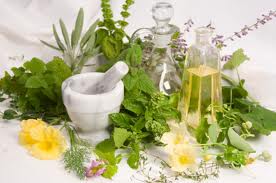Our skin is the bodies largest organ; an organ that can become inflamed when pores become clogged and when the sebaceous glands produce too much oil. Whiteheads, blackheads and pimples occur when oil mixes with the dead skin cells that are constantly being sloughed off. Acne isn’t just a teenage condition – it’s also common in many adults.
Understanding Acne and Its Causes
Acne is a common skin condition that affects people of all ages, from teenagers to adults. It is characterised by the appearance of pimples, blackheads, and other blemishes on the skin, often on the face, back, and chest. The primary causes of acne include excess oil production, clogged pores, bacteria, and hormonal imbalances.
Understanding the underlying causes of your acne is the first step towards finding an effective treatment. Factors such as diet, stress, and certain medications can also contribute to the development of acne. By addressing these root causes, you can take a more holistic approach to managing your skin condition.

Sometimes, because of hormonal imbalances or other problems, the skin develops problems no matter what precautions you take. You don’t have to purchase expensive products to get great results in clearing your skin.
The Benefits of Using Natural Remedies for Acne Treatment
While there are numerous over-the-counter and prescription medications available for acne treatment, many individuals are turning to natural remedies as a more gentle and sustainable approach. Natural ingredients often have anti-inflammatory, antibacterial, and oil-regulating properties that can help address the various factors contributing to acne.
Using natural remedies for acne can provide several benefits, including:
- Reduced side effects: Many synthetic acne treatments can cause dryness, irritation, and other undesirable side effects. Natural remedies are generally more gentle on the skin.
- Targeted treatment: Natural ingredients can be tailored to address specific acne concerns, such as reducing inflammation, unclogging pores, or balancing oil production.
- Long-term skin health: Natural remedies often work to address the underlying causes of acne, promoting overall skin health and resilience.
- Cost-effectiveness: Many natural acne treatments can be found in your own kitchen or easily purchased at local stores, making them a more affordable option.
Natural Ingredients for Acne Treatment
When it comes to natural acne treatment, there are a variety of ingredients that can be effectively used. Some of the most popular and effective natural remedies include:
- Tea Tree Oil: Known for its potent antibacterial and anti-inflammatory properties, tea tree oil can help reduce the appearance of pimples and prevent future breakouts.
- Bentonite Clay: This mineral-rich clay can help absorb excess oil, unclog pores, and draw out impurities from the skin.
- Aloe Vera: Aloe vera is a soothing and hydrating ingredient that can help reduce redness and inflammation associated with acne.
- Honey: Honey has natural antibacterial and wound-healing properties that can aid in the treatment of acne.
- Turmeric: The active compound in turmeric, curcumin, has anti-inflammatory and antioxidant effects that can help combat acne.
- Witch Hazel: This astringent can help tighten pores, reduce excess oil, and soothe irritated skin.
- Green Tea: The polyphenols in green tea have been shown to have anti-inflammatory and antimicrobial effects that can benefit acne-prone skin.
Creating a Skincare Routine for Acne-Prone Skin
Developing a consistent and targeted skincare routine is crucial for managing acne. Here are the key steps to consider:
- Cleansing: Use a gentle, non-comedogenic (non-pore-clogging) cleanser to remove excess oil, dirt, and impurities from the skin without stripping it.
- Toning: Incorporate a toner with natural ingredients like witch hazel or rose water to help balance pH levels and prepare the skin for further treatment.
- Treating: Apply targeted acne treatments, such as spot treatments with tea tree oil or a clay mask, to address specific blemishes and problem areas.
- Moisturising: Choose a lightweight, oil-free moisturiser to hydrate the skin without clogging pores.
- Sun Protection: Use a non-comedogenic, broad-spectrum sunscreen to protect your skin from damaging UV rays, which can exacerbate acne.
Consistency is key when it comes to an effective skincare routine. Stick to your regimen and give the natural remedies time to work, as results may not be immediate.
Cleansing Methods and Products for Acne Treatment
Proper cleansing is the foundation of any effective acne treatment. Avoid harsh, drying cleansers that can strip the skin and lead to increased oil production and further breakouts. Instead, opt for gentle, non-comedogenic cleansers that can effectively remove impurities without disrupting the skin’s natural balance.
Some recommended cleansing methods and products for acne-prone skin include:
- Double Cleansing: Start with an oil-based cleanser to dissolve makeup, sebum, and other impurities, followed by a water-based cleanser to thoroughly cleanse the skin.
- Konjac Sponge: This natural exfoliating sponge can gently remove dead skin cells and unclog pores without causing irritation.
- Clay Cleansers: Look for cleansers containing bentonite or kaolin clay, which can help absorb excess oil and deep-clean pores.
- Micellar Water: This gentle, no-rinse cleansing water can effectively remove dirt and impurities without disrupting the skin’s moisture barrier.
Remember to cleanse your skin twice a day, once in the morning and once in the evening, to maintain a clear and healthy complexion.
Natural Remedies for Reducing Inflammation and Redness
Acne often comes with unwanted inflammation and redness, which can be both unsightly and uncomfortable. Fortunately, there are several natural remedies that can help soothe and calm the skin:
- Aloe Vera: The cooling and soothing properties of aloe vera can provide relief for inflamed and irritated skin.
- Green Tea: The antioxidants and anti-inflammatory compounds in green tea can help reduce redness and swelling.
- Chamomile: This herb has been used for centuries to calm and soothe the skin due to its anti-inflammatory and antibacterial properties.
- Oatmeal: Colloidal oatmeal can help relieve itchiness, redness, and inflammation associated with acne.
- Cucumber: The high water content and cooling effects of cucumber can help reduce the appearance of redness and irritation.
- Apple Cider Vinegar – The acid in apple cider vinegar helps to clean facial pores. It can also kill bacteria and remove excess oil on the face.
- Egg Whites – Egg whites are a natural astringent. Apply as you would a mask on your face and after a few moments, wash with clear water.
To use these natural remedies, you can apply them topically as a mask or spot treatment, or incorporate them into your daily skincare routine.
DIY Face Masks for Acne Treatment
Creating your own DIY face masks can be a fun and effective way to target your specific acne concerns. Here are some easy-to-make, natural face mask recipes to try:
- Honey and Cinnamon Mask:
- Ingredients: 2 tbsp raw honey, 1 tsp ground cinnamon
- Benefits: Honey has antibacterial properties, while cinnamon can help reduce inflammation and redness.
- Bentonite Clay and Tea Tree Oil Mask:
- Ingredients: 2 tbsp bentonite clay, 5-10 drops of tea tree oil, water
- Benefits: Bentonite clay absorbs excess oil and impurities, while tea tree oil provides antibacterial and antiseptic effects.
- Turmeric and Yogurt Mask:
- Ingredients: 1 tbsp turmeric, 2 tbsp plain yogurt
- Benefits: Turmeric’s anti-inflammatory properties can help reduce redness and swelling, while the lactic acid in yogurt can gently exfoliate the skin.
- Oatmeal and Honey Mask:
- Ingredients: 1/2 cup ground oatmeal, 2 tbsp honey, water
- Benefits: Oatmeal soothes and calms the skin, while honey provides antibacterial and moisturising properties.
Apply these masks 1-2 times per week, leave them on for 10-15 minutes, and then rinse thoroughly with warm water. Adjust the ingredient quantities as needed to suit your skin’s needs.
Lifestyle Changes to Support Acne Treatment
In addition to incorporating natural remedies into your skincare routine, making certain lifestyle changes can also help support the treatment of acne. Consider the following:
- Dietary Adjustments: Certain foods, such as those high in sugar, dairy, and unhealthy fats, can exacerbate acne. Try to incorporate more whole, nutrient-rich foods, such as fruits, vegetables, and lean proteins, into your diet.
- Stress Management: Stress can trigger the production of hormones that lead to increased oil production and inflammation, both of which can worsen acne. Practice stress-reducing techniques, such as meditation, yoga, or deep breathing exercises.
- Hydration: Drinking plenty of water can help flush out toxins and maintain a healthy skin barrier, which can aid in acne prevention and treatment.
- Adequate Sleep: Lack of sleep can disrupt the body’s natural hormone balance and lead to increased acne breakouts. Aim for 7-9 hours of quality sleep each night.
- Exercise: Regular physical activity can help reduce stress, improve circulation, and support overall skin health, all of which can benefit acne-prone skin.
By making these lifestyle adjustments in conjunction with your natural acne treatment regimen, you can create a holistic approach to achieving clearer, healthier skin.
Managing Stress and Its Impact on Acne
Stress is a significant contributor to the development and exacerbation of acne. When the body is under stress, it produces more of the hormone cortisol, which can lead to increased oil production, inflammation, and the clogging of pores.
To effectively manage stress and its impact on your skin, try the following strategies:
- Practice Relaxation Techniques: Engage in activities that help you unwind, such as meditation, deep breathing exercises, or gentle yoga.
- Get Enough Sleep: Aim for 7-9 hours of quality sleep each night, as lack of sleep can disrupt the body’s natural hormone balance and contribute to acne breakouts.
- Maintain a Balanced Diet: Eat a diet rich in whole, nutrient-dense foods that can help support the body’s stress response and skin health.
- Exercise Regularly: Physical activity can help reduce stress and improve circulation, which can benefit acne-prone skin.
- Seek Support: Don’t hesitate to reach out to friends, family, or a mental health professional if you’re struggling with stress or anxiety that may be impacting your skin.
By addressing the role of stress in your acne management, you can take a more holistic approach to achieving clearer, healthier skin.
Seeking Professional Advice for Severe Acne Cases
While natural remedies can be highly effective for many individuals, there may be instances where more severe or persistent acne requires the guidance of a healthcare professional. If your acne does not respond to home treatments, or if you experience painful, cystic breakouts, it’s advisable to consult a dermatologist or your primary care physician.
A healthcare professional can provide a comprehensive evaluation of your skin condition and recommend appropriate treatment options, which may include:
- Prescription topical medications: These can include retinoids, antibiotics, or other targeted treatments to address the underlying causes of acne.
- Oral medications: In some cases, oral medications such as birth control pills or antibiotics may be prescribed to regulate hormones or combat bacterial infections.
- In-office procedures: Treatments like chemical peels, laser therapy, or extractions may be recommended for more stubborn or severe acne cases.
While natural remedies can be a great starting point, seeking professional advice can be crucial for managing more complex or treatment-resistant acne. Your healthcare provider can work with you to develop a personalised treatment plan that addresses your specific needs and concerns.
Conclusion
Acne can be a frustrating and persistent skin condition, but by incorporating natural remedies into your skincare routine and making lifestyle adjustments, you can effectively manage and treat it at home. Remember to be patient and consistent with your approach, as it may take some time to see the full benefits of these natural treatments.
If you have severe or persistent acne that does not respond to home remedies, don’t hesitate to seek professional guidance from a dermatologist or your primary care GP. With the right combination of natural and medical interventions, you can achieve clearer, healthier skin and boost your confidence.To learn more about natural ways to treat acne at home, download our free guide “10 Effective Natural Remedies for Acne” by clicking the button below.


